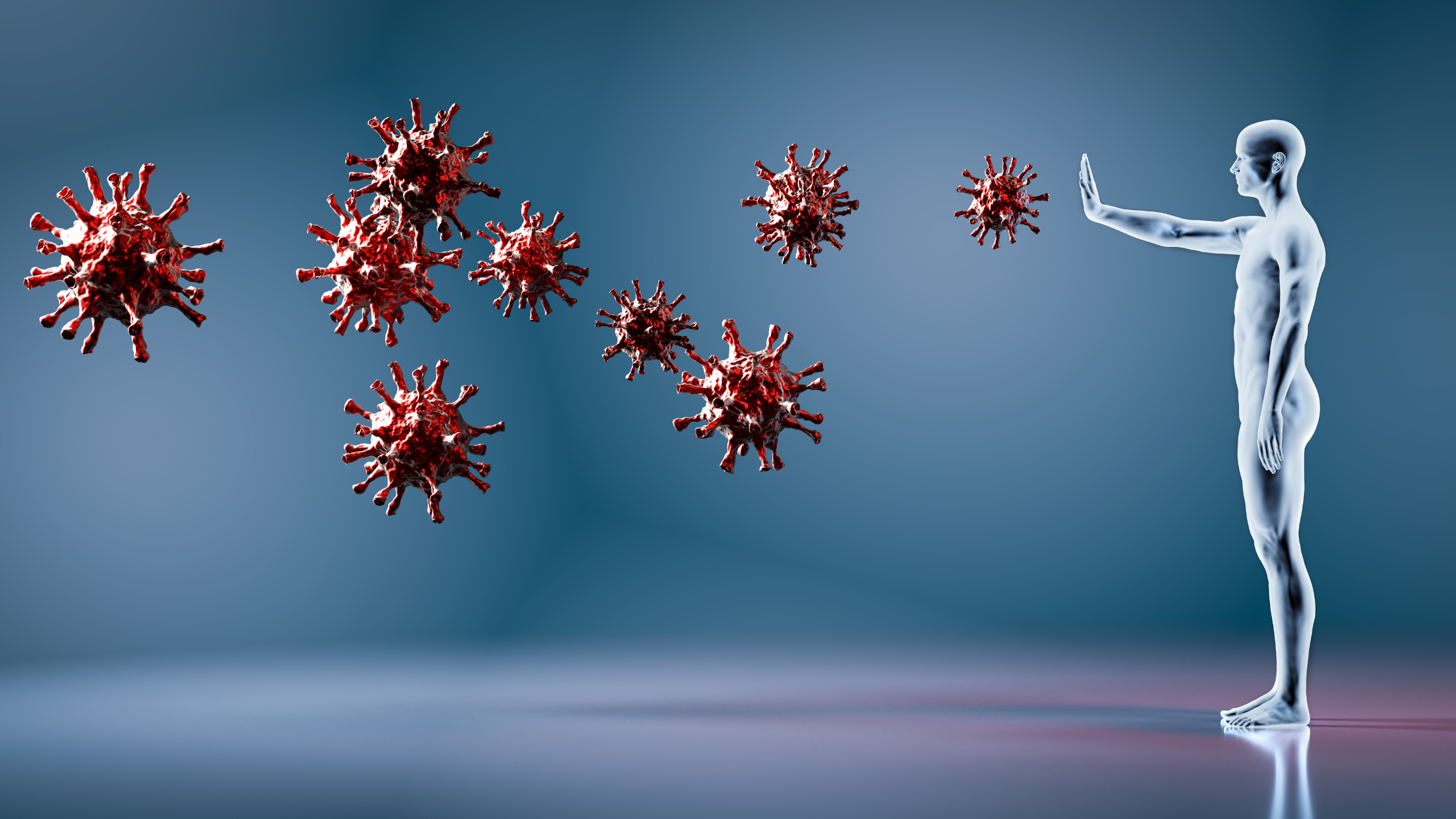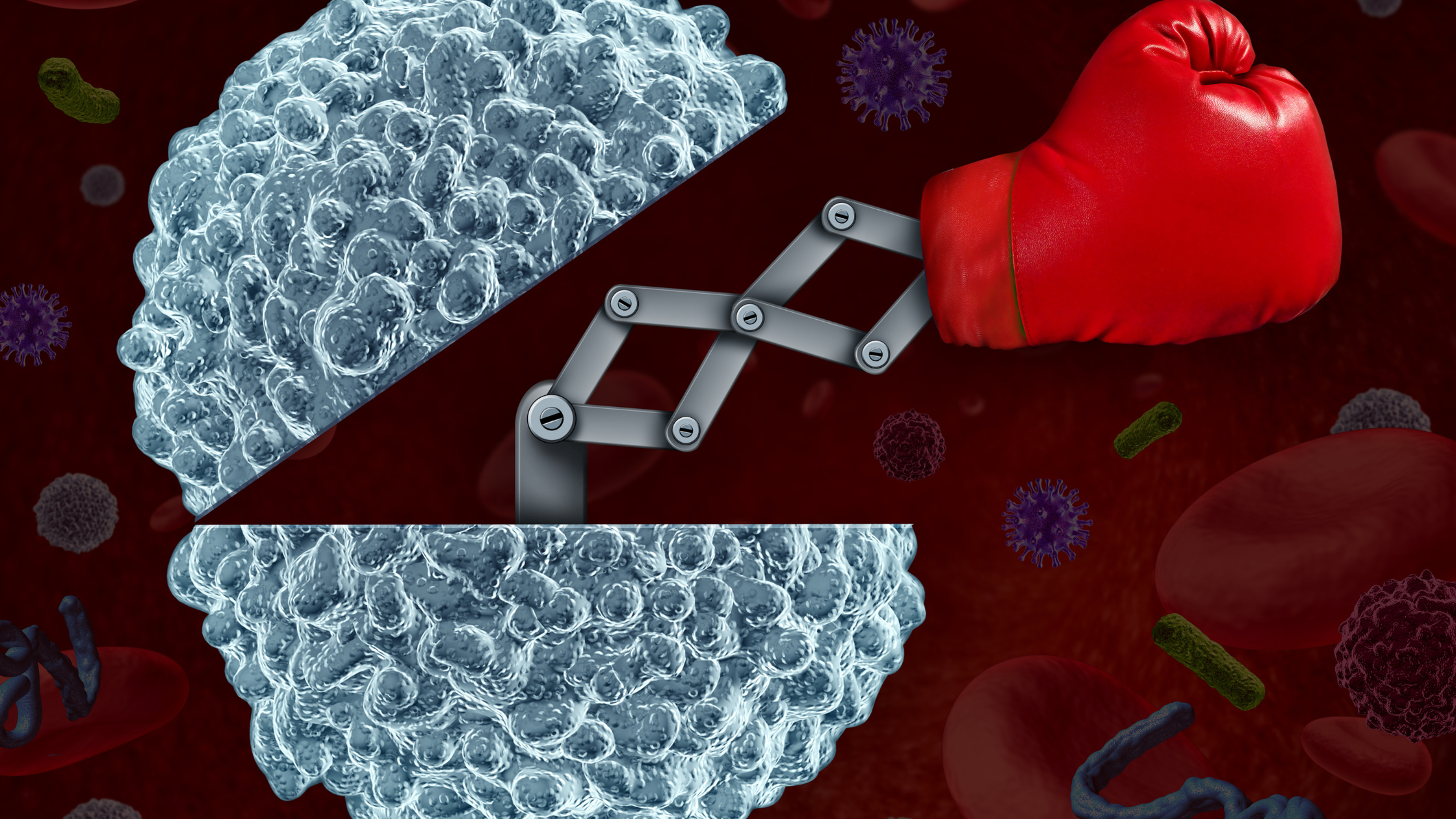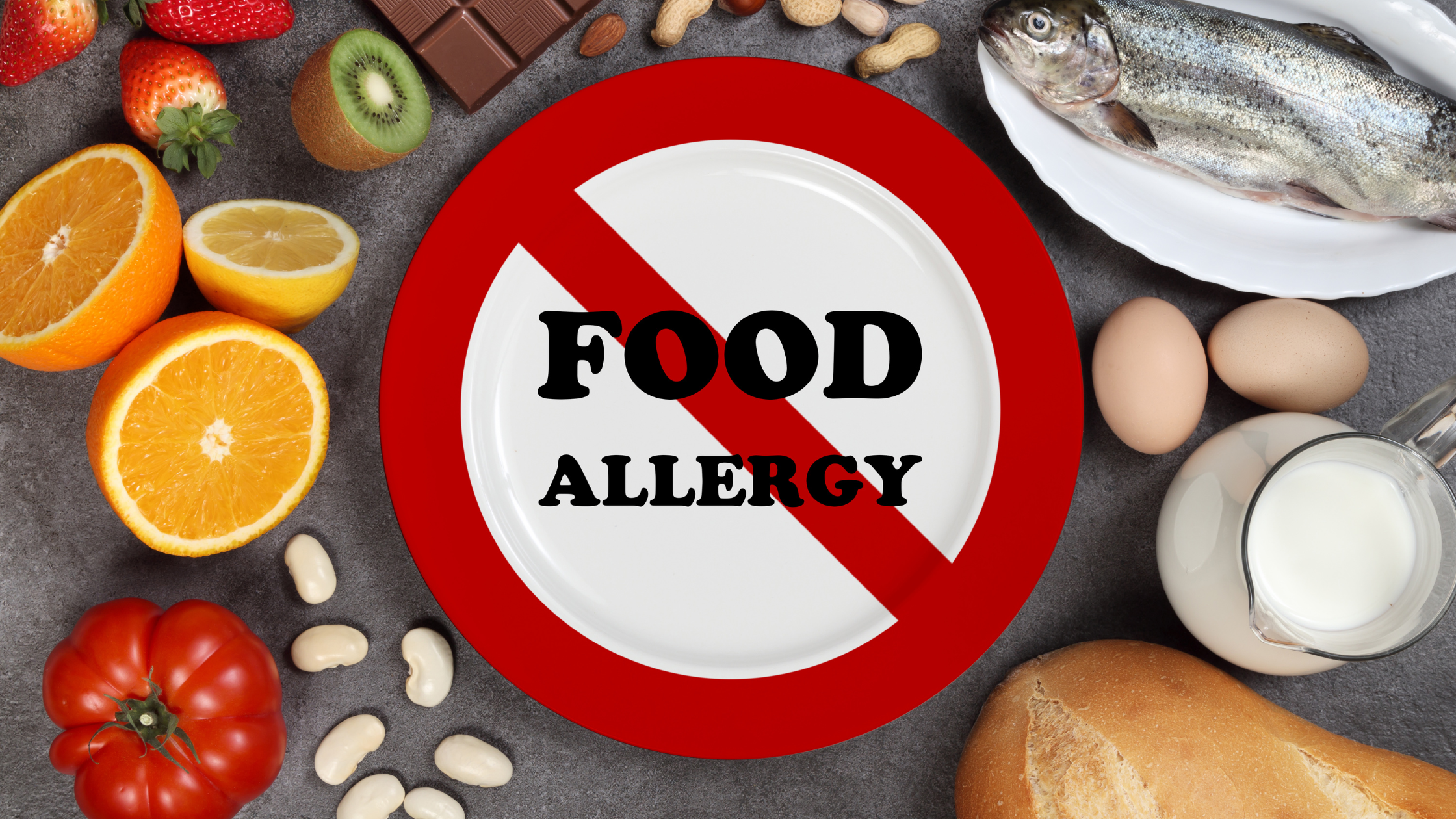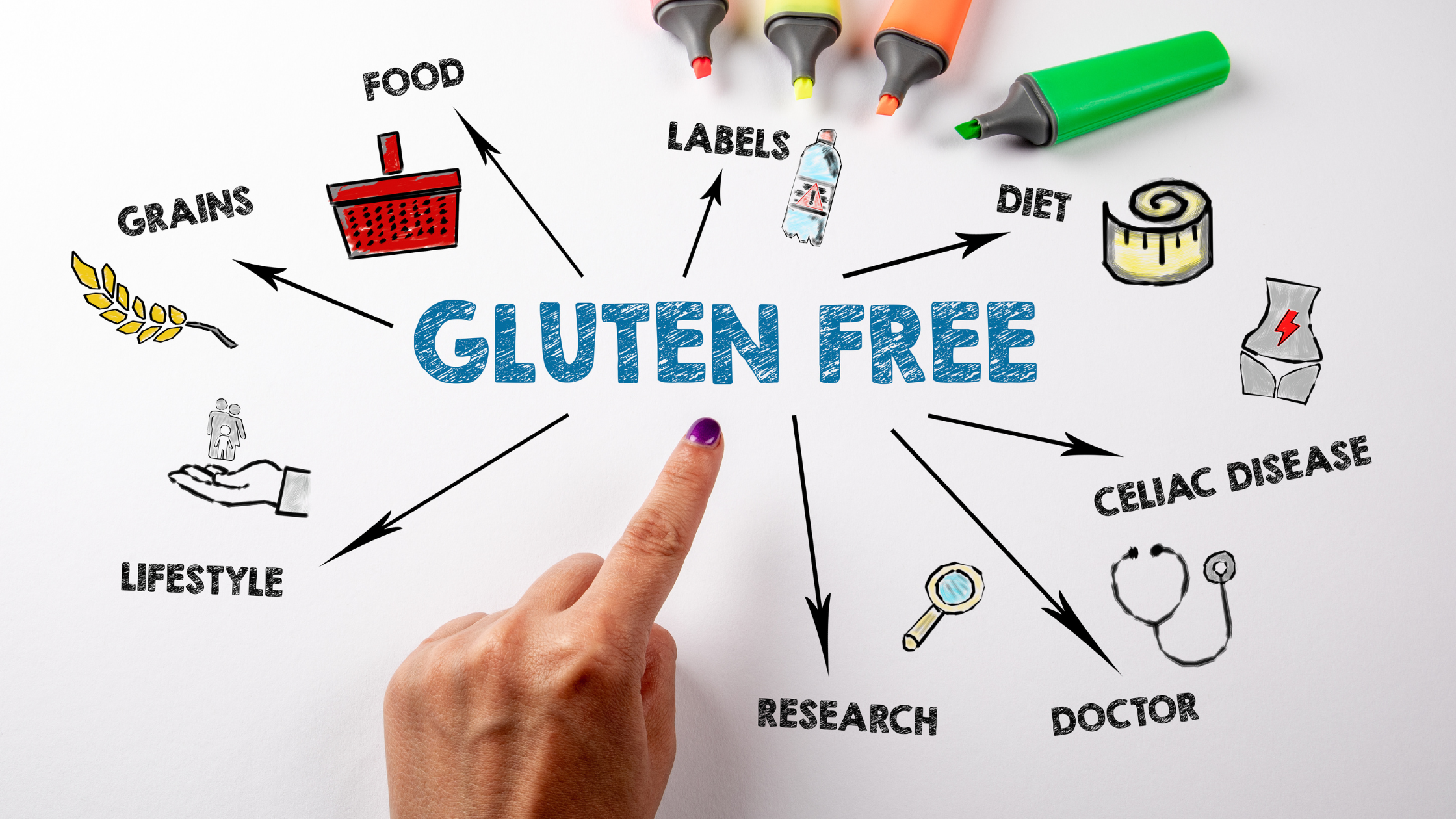Why Do You Have Allergies? And Can You Develop Them Later in Life?
Written by TYE Medical on Aug 1st 2022
Ever wonder why your nose is stuffy or your eyes won’t stop itching? Of course it’s allergies, but why do you have them? Why does pollen blowing off the trees force you to stock your medicine cabinet with boxes of antihistamines? Or, why have you eaten a specific food your entire life, and suddenly you can’t digest it without discomfort?
Science can tell you what’s happening and explain the chain reaction that happens when an allergen triggers your immune system. The more profound question about why allergies exist in the first place has no decisive answer, although theories abound.
What happens inside your body when you inhale an allergen you react to like pet dander? Why does it cause such troubling symptoms? Here is the lowdown on your body’s reaction, including a common symptom list and the scoop on adult-onset allergies.
Purpose and Anatomy of the Immune System

Most of us have some idea about lymph nodes and white blood cells, but the human immune system consists of a complex network of organs and cells designed to protect your body from infection. The organs are called lymphoid organs and contain blood vessels and lymphatic vessels to help them carry out their purpose.
Lymphoid organs include:
- Adenoids (back of your nasal passage)
- Appendix
- Blood vessels
- Bone marrow
- Lymph nodes
- Lymphatic vessels (transports lymphocytes)
- Spleen
- Thymus (between trachea and breastbone)
- Tonsils
Only primary lymphoid organs like the thymus and bone marrow produce lymphocytes (a type of white blood cell). The secondary lymphoid organs house and activate the lymphocytes when invading microorganisms are detected.
What Happens During an Allergic Reaction?

When your body comes into contact with something it perceives as a threat, your advanced immune system brings all the necessary information to special lymphocytes that then release a flood of antibodies into your system.
These antibodies trigger your mast cells (another part of your immune system) to release histamines to attack invaders. But in the case of allergies, your body is fighting benign substances, not harmful microorganisms. These chemical histamines are the source of your many uncomfortable allergy symptoms.
Your symptoms usually depend on the type of allergen you’ve come into contact with and how it entered your body. This is where the histamines will attack. So skin allergens cause an itchy rash, swelling, and even burning in your skin. But pollen allergies often inhaled through your nose, trigger congestion, chest tightness, or a runny nose.
Your immune system develops a memory (immunological memory) that allows it to respond more quickly when you’re exposed to an allergen repeatedly. The danger is that repeated exposure to the allergen can create an even bigger overreaction in your body. This means your symptoms become more severe every time you come into contact with the allergen.
It’s also important to keep in mind that the antibodies deliver very specific information to the histamines before they attack. This is why you may be allergic to a couple of types of pollen but not to others.
Symptoms of an Allergic Reaction

Allergy symptoms vary from mild to life-threatening (anaphylactic).
- Itchy nose
- Itchy watery eyes
- Runny nose
- Sneezing
- Hives
- Rashes
- Stomach cramps
- Diarrhea
- Vomiting
- Bloating
- Swelling
- Redness
- Pain
- Cough
- Tongue swelling
- Throat closing
- Cough
- Chest tightness, loss of breath
- Wheezing
- Feeling faint, lightheaded, blacking out
Some of the gastrointestinal symptoms may surprise you. We don’t think of bloating, stomach cramps, or diarrhea as allergy symptoms. But these can be signs of food allergies.
Can You Develop Allergies as an Adult?

You can develop allergies at any point in your life. Even if just one parent has allergies, you have a 30-50% chance of developing them yourself. Your odds almost double if both parents have allergies.
Many people experience their first allergy symptoms as a child, either during infancy or as a toddler. In most cases, these allergies will continue throughout their lives, but it’s possible for these allergies to resolve on their own in time.
When your first allergy symptoms appear as an adult, it’s called “adult-onset” allergies. The most common reasons for adult-onset allergies are:
- Exposure to new allergens
- Changes in your immune system
- Family history
Unfortunately, you can’t avoid adult-onset allergies if you’re prone to them.
However, if you make it through your 20s and 30s without any new allergy symptoms, the chances of developing new ones later drop drastically. But it’s possible to experience new allergy symptoms in your 70s and 80s.
What is perhaps most surprising and frustrating about adult-onset allergies is that you can go to sleep without allergy symptoms one night and wake up with them the next day. This makes adjustment difficult.
What Causes Adult-Onset Allergies?
If you’re already predisposed to a particular allergy but have never been exposed to the allergen, after exposure, it might seem like you “suddenly” developed an allergy. In reality, you’ve always been allergic but haven’t had the exposure necessary to trigger it.
If you never had a pet growing up and your spouse brings home a puppy, you might experience allergy symptoms after prolonged exposure to pet dander.
The sudden development of allergies in adulthood usually has a medical explanation, such as above. And of course, it’s not only the changes in your environment that are the culprit, but changes within your own body (such as hormones) that can trigger allergies.
The genetic and environmental factors involved in the development of allergies are very complex, so scientists don’t yet know why some people develop while others don't.
What Are the Most Common Adult-Onset Allergies?

Food allergies comprise about 50% of allergies developed later in life, according to the American College of Allergy, Asthma, and Immunology.
What are the most common food allergens for adults? Peanuts, tree nuts, and shellfish. It’s possible for this to be an issue of exposure, especially in the case of shellfish. Most children in the U.S. don’t eat shellfish and might discover an allergy when they consume it as an adult.
Will Your Allergies Improve on Their Own?
There is no definitive answer for this since it varies among individuals and circumstances. But generally speaking, you can gauge this for yourself based upon the severity and types of you with your initial reaction. Whether or not you will “outgrow” your allergies also depends on the number of foods you’re allergic to. The more allergens you have, the less likely your allergies will resolve on their own.
But we do know that milk, egg, and soy allergies tend to improve with time while peanut, tree nut, fish and shellfish allergies often don’t improve.
What Is the Difference Between a Food Allergy and Food Intolerance?

If it’s a food allergy, it will trigger your immune system even if you consume a small amount. Symptoms can even be severe or life-threatening. But a food intolerance tends to affect only your digestive system without engaging your immune system. Your symptoms are often less severe.
If it’s a food intolerance, you can often eat the offending food in small amounts without noticeable symptoms. People usually develop an intolerance to specific foods for two major reasons:
Absence of a digestive enzyme: You may lack the specific enzyme needed to fully digest a food or ingredient. For example, in lactose intolerance, you lack the enzyme needed to breakdown lactose in dairy.
Irritable bowel syndrome: IBS causes cramping, constipation, and diarrhea when you eat certain foods.
But even though your symptoms may be less severe than a food allergy, don’t assume it’s okay to indulge. Regardless of the reason for your food intolerance, continuing to eat that food is hard on your body. It may even affect your gut health and sap your energy if you continue to consume it despite the uncomfortable symptoms.
What About Celiac Disease?

Celiac’s is triggered when you consume gluten, a protein found in wheat, barley, rye, and any cross of these grains. Like a true food allergy, your body reacts to the presence of gluten and triggers your immune system. But rather than creating severe or life-threatening reactions, your body attacks its own digestive tract, specifically tissues in the small intestine.
You might not be in immediate danger if you eat gluten, but you’re causing chronic, long-term damage to your digestive system. However, with a genuine allergy there is no destruction of tissues even though symptoms may not be severely uncomfortable or life-threatening.
However, if you have celiac disease, your symptoms will affect more than just your digestive system. You may experience a host of symptoms including headaches, fatigue, and joint pain.
Combat Allergies and Protect Against Bladder Leaks
Allergies and a ramped up immune system also trigger inflammation in your body. This along with the coughing and sneezing symptoms associated with respiratory allergies can take toll on your bladder, even causing leaks.
TYE Medical offers premium products for various levels of urinary incontinence. Shop our online store and get free, discreet shipping on all orders! Have questions? Contact our friendly customer service team or use our Product Finder tool.


